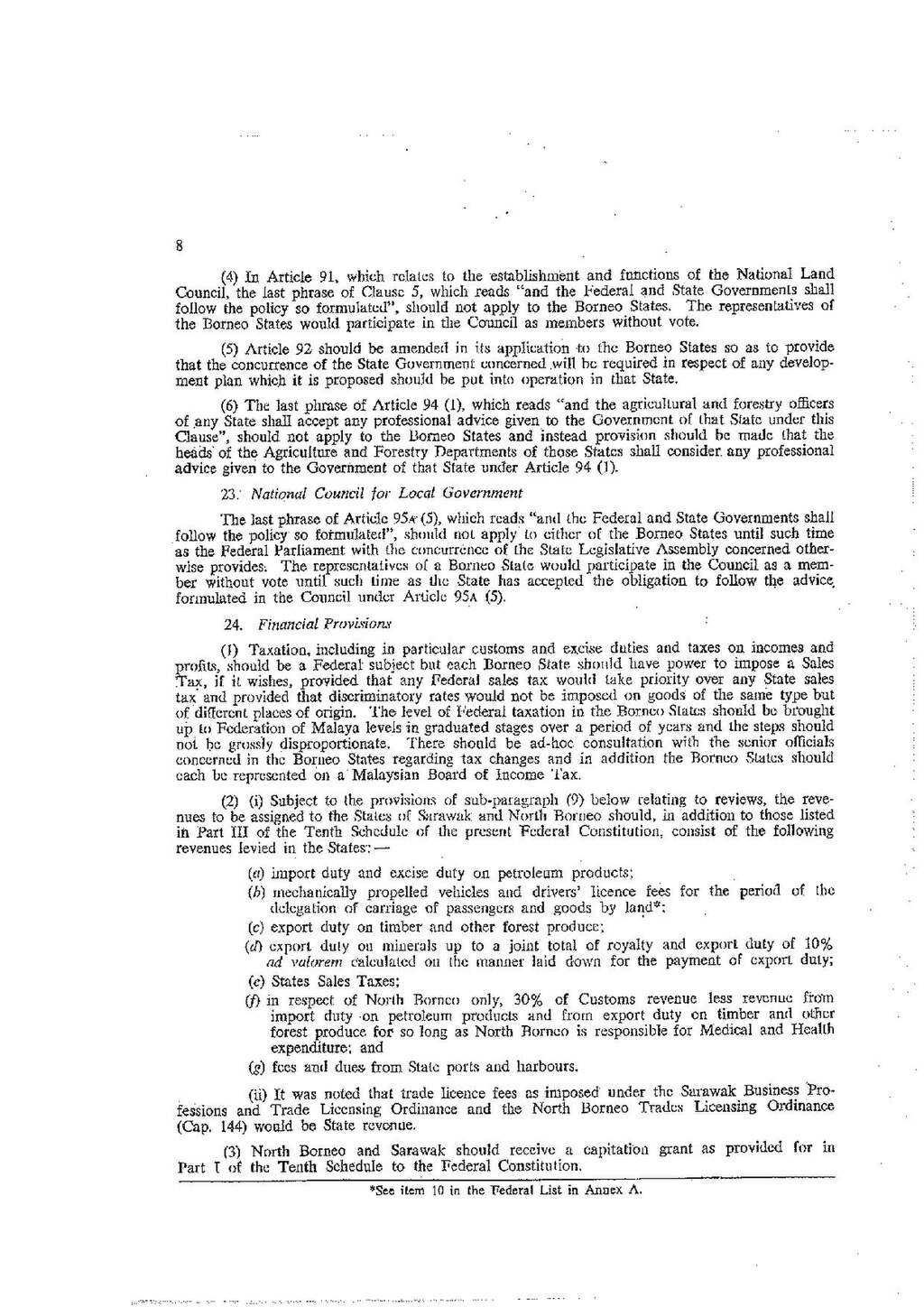8
(4) In Article 91, which relates to the establishment and functions of the National Land Council, the last phrase of Clause 5, which reads "and the Federal and State Governments shall follow the policy so formulated", should not apply to the Borneo States. The representatives of the Borneo States would participate in the Council as members without vote.
(5) Article 92 should be amended in its application to the Borneo States so as to provide that the concurrence of the State Government concerned will be required in respect of any development plan which it is proposed should be put into operation in that State.
(6) The last phrase of Article 94 (1), which reads “and the agricultural and forestry officers of any State shall accept any professional advice given to the Government of that State under this Clause", should not apply to the Borneo States and instead provision should be made that the heads of the Agriculture and Forestry Departments of those States shall consider any professional advice given to the Government of that State under Article 94 (1).
23. National Council for Local Government
The last phrase of Article 95A (5), which reads "and the Federal and State Governments shall follow the policy so formulated", should not apply to either of the Borneo States until such time as the Federal Parliament with the concurrence of the State Legislative Assembly concerned otherwise provides. The representative of a Borneo State would participate in the Council as a member without vote until such time as the State has accepted the obligation to follow the advice formulated in the Council under Article 95A (5).
24. Financial Provisions
(1) Taxation, including in particular customs and excise duties and taxes on incomes, and profits, should be a Federal subject but each Borneo State should have power to impose a Sales Tax, if it wishes, provided that any Federal sales tax would take priority over any State, sales tax and provided that discriminatory rates would not be imposed on goods of the same type but of different places of origin. The level of Federal taxation in the Borneo States should be brought up to Federation of Malaya levels in graduated stages over a period of years and the steps should not be grossly disproportionate. There should be ad hoc consultation with the senior officials concerned in the Borneo States regarding tax changes and in addition the Borneo States should each be represented on a Malaysian Board of Income Tax.
(2)(i) Subject to the provisions of sub-paragraph (9) below relating to reviews, the revenues to be assigned to the States of Sarawak and North Borneo should, in addition to those listed in Part III of the Tenth Schedule of the present Federal Constitution, consist of the following revenues levied in the State:—
(ii) It was noted that trade licence fees as imposed under the Sarawak Business Professions and Trades Licensing Ordinance and the North Borneo Trades Licensing Ordinance (Cap. 144) would be State revenue.
(3) North Borneo and Sarawak should receive a capitation grant as provided for in Part I of the Tenth Schedule to the Federal Constitution.
- ↑ See item 10 in the Federal List in Annex A.
